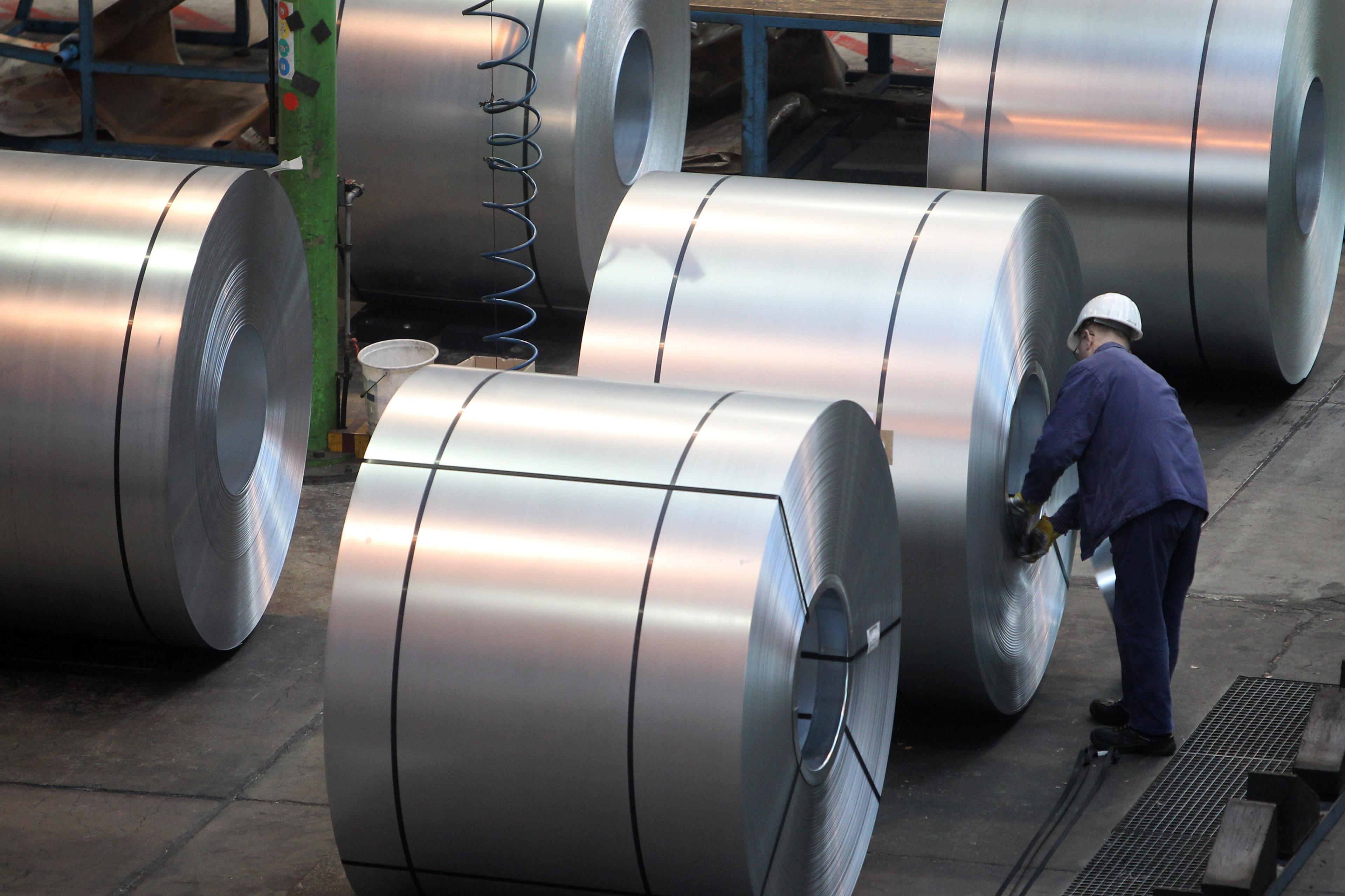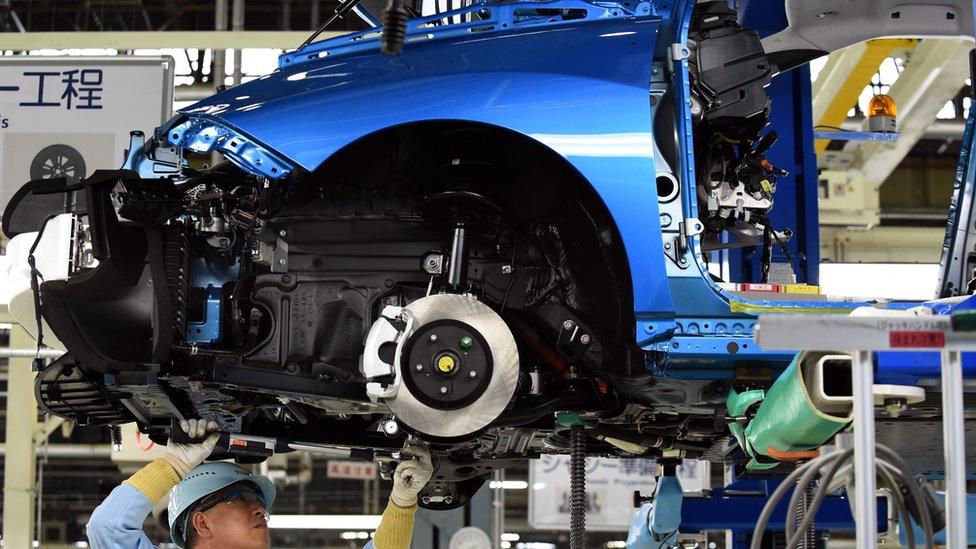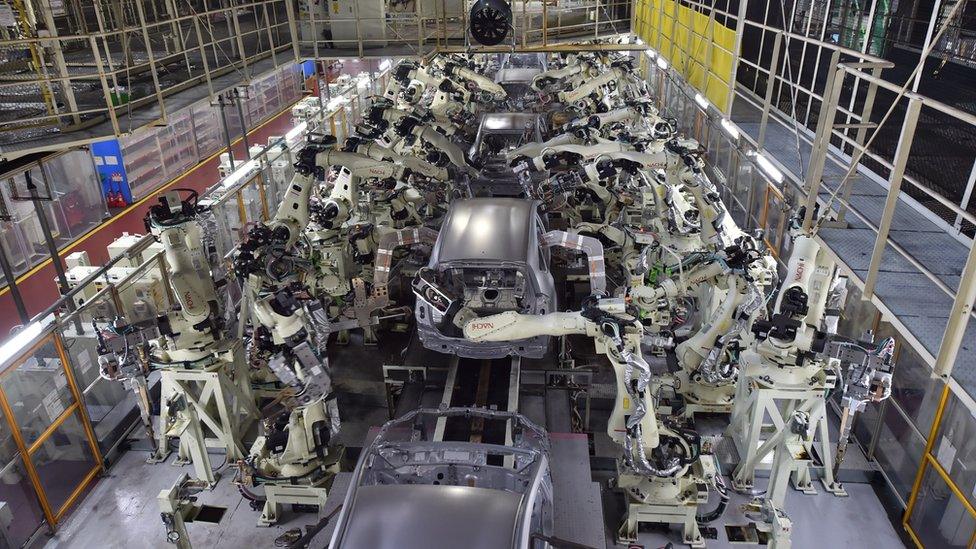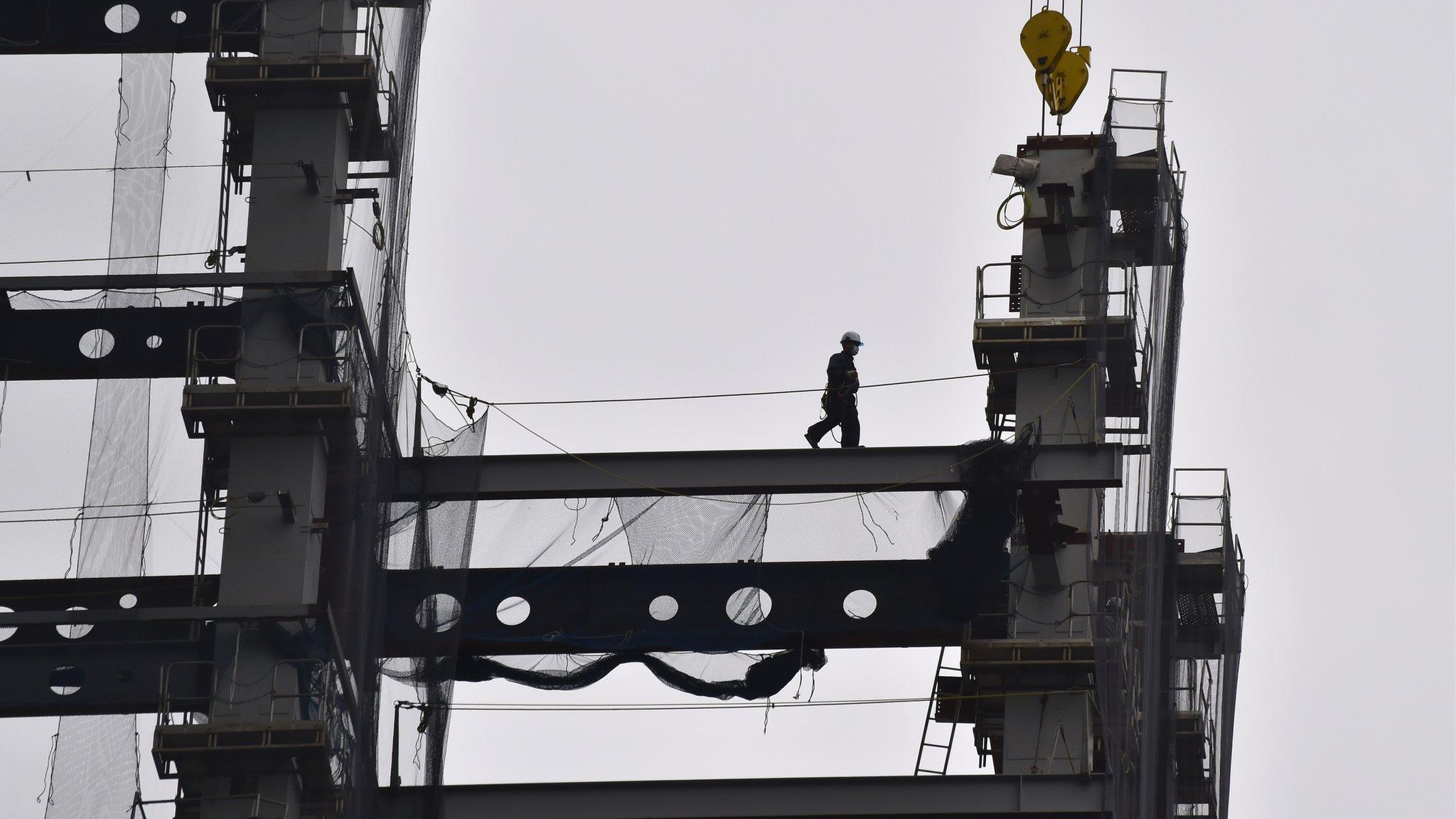Kobe Steel: More data fabrication cases possible
- Published

Kobe Steel has warned that there may be more cases of falsified product data, in a sign the unfolding scandal could worsen.
The Japanese company has already admitted that products were sold to about 200 firms with false data about their strength and durability.
"The credibility of Kobe Steel has plunged to zero," said Kobe's president, Hiroya Kawasaki
Toyota, Mazda and General Motors are among the firms affected.
The Japanese government wants the steelmaker to report on the result of its safety checks within two weeks.
The country's trade ministry also wants Kobe Steel to provide reasons for the data fabrication and prevention measures within a month, Mr Kawasaki told reporters after a meeting with the ministry.
"We will make efforts to regain trust as soon as possible," he said.
Share plunge
Kobe Steel revealed on Sunday that some aluminium and copper products shipped from September 2016 to August 2017 were falsely labelled as meeting the specifications requested by customers. It admitted the fabrications may have started a decade ago.
Since then the embattled firm has seen its shares plunge nearly 40% - wiping more than $1.5bn (£1.1bn) off its market value - though the stock stabilised in trading on Thursday.
Mr Kawasaki said he did not expect recalls of cars or airplanes for now, and none of the company's customers had cancelled orders.
But concern has spread across the range of industries - including automotive, train and aircraft manufacturers - that use Kobe Steel's products.
Companies from Japan and abroad are investigating whether the safety of their products has been compromised.

Analysis: Karishma Vaswani, Asia business correspondent

Kobe Steel supplied materials to Toyota, Mazda and Honda
Kobe Steel's troubles are unlikely to end anytime soon. If anything, they're just beginning.
Many questions have been raised about how these types of irregularities could have gone unnoticed for so long.
Kobe Steel's spokesperson Gary Tsuchida told me that dozens of employees - some of them veterans - were involved in the fabrication of the data. But he couldn't tell me whether these errors were intentional.
At the heart of this are some very simple questions: Did Kobe's management know that the certificates were being falsified? Or are there systemic issues in the firm that led to these errors?
Management now has a month to deliver its findings. What they say will reveal just how deep the rot in corporate Japan goes.

Investigations continue
Toyota, General Motors, Honda and Mazda are among the major carmakers checking their models. Toyota said it used materials from Kobe in bonnets, rear doors and other auto parts.
Both Honda and Mazda use Kobe aluminium in the bonnets of some of their cars.
"We won't know if we need to take any action until those investigations are complete," a spokesperson for Mazda said.
However, a number of companies say they are satisfied that their products are safe.
Hitachi said its new trains in Britain used Kobe Steel, but they had all passed rigorous tests. Central Japan Railway said while some Kobe Steel parts for its bullet trains did not meet Japanese industrial standards, there were no safety issues.
US plane manufacturer Boeing also said it had not found any safety issues.
- Published12 October 2017

- Published13 October 2017
